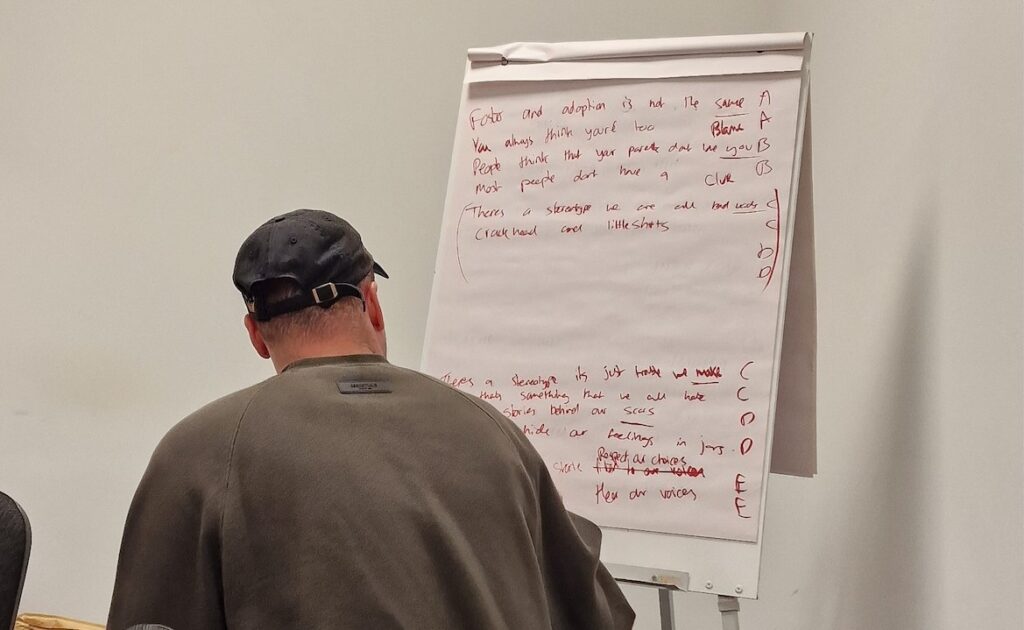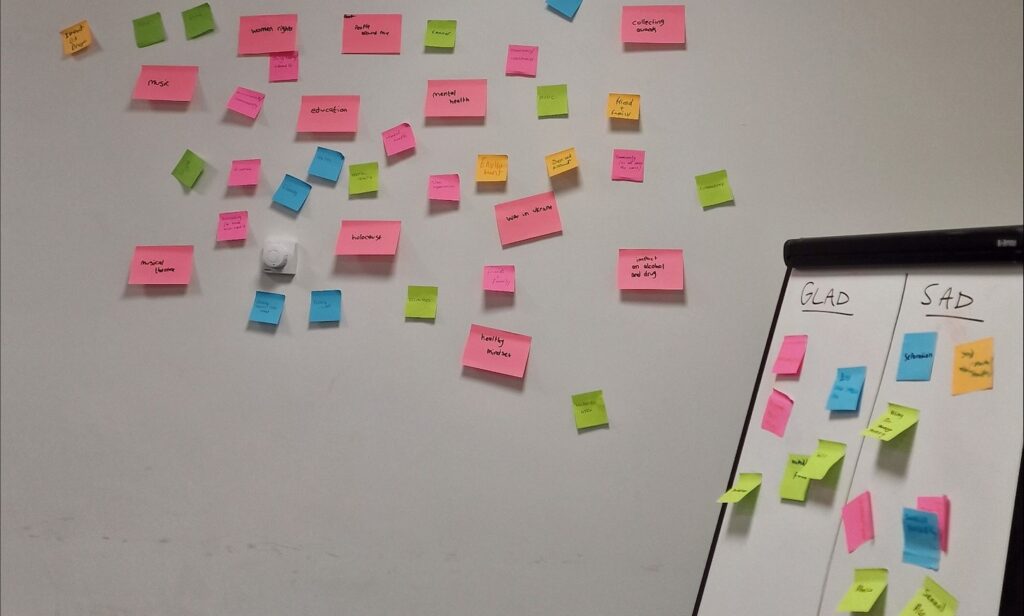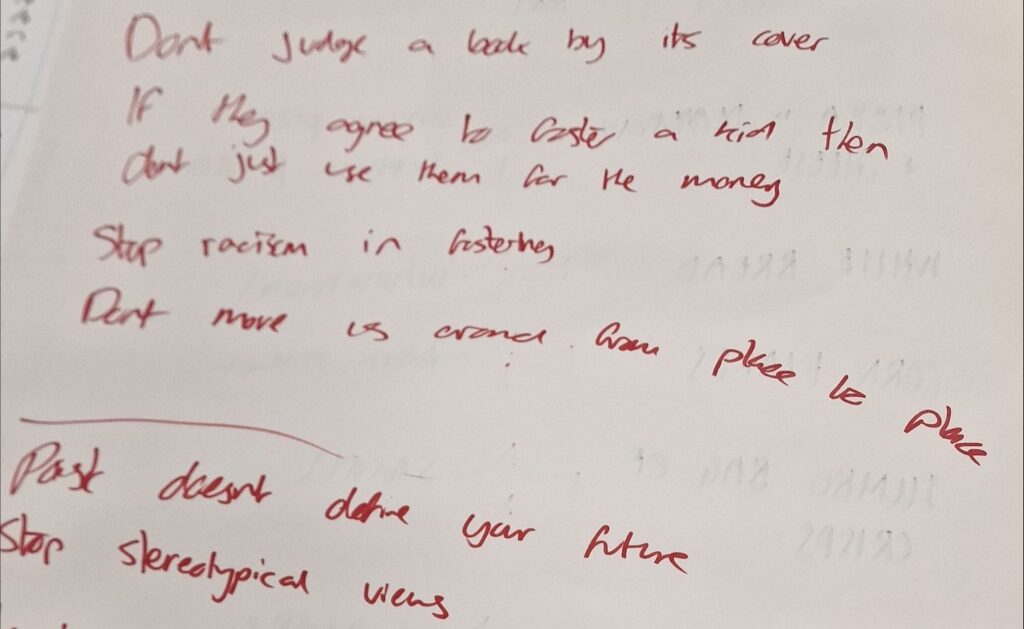
A group of care-experienced young people from South Wales have been working alongside former Children’s Laureate for Wales, Connor Allen, to produce a poem sharing their experiences of being young people in foster care.
Here, Ben*, 14, one of the young people involved in creating the poem, shares his hopes for creating a society free of misconceptions around care experienced young people.
getting involved
I wanted to get involved in this campaign because I want people to see what it’s like to be a teenager in care and hear our truths; there are too many preconceptions about young care-experienced people, and I want to change that.
By changing stereotypes, I hope to change people’s opinions, particularly in schools, and then more people begin to understand fostering.
The workshop we took part in was great; I enjoyed doing something creative with our group, combining all our experiences and ideas.
Connor was wicked; he was funny and had a good character, but he also had real-life experiences that made him relatable. We felt like he listened to our stories and experiences and guided us to turn those into ideas for the poem, rather than putting words in our mouths.

school and peers
One of the most frustrating things that we come across is people confusing adoption with fostering; there is a difference between them. I find it upsetting when people assume I’m adopted because I have someone who doesn’t look like me looking after me.
I don’t often openly tell people about my foster carers unless I’m comfortable with them.
Our story is ours to tell and it’s up to us whether we share it with people we know. One of my teachers told everyone in the class that I was in foster care, without any warning, and I felt so embarrassed and upset.
They differentiate us from everyone else, as if being in foster care makes us different from the rest of our classmates, it’s just one aspect of our lives.

negative portrayals in the media
TV and films play a big part in creating the narrative about us – teenagers in care. We’re normally portrayed as difficult, disruptive young people who are on a negative path in life.
Many people think that young people in care are troublemakers, we take drugs, get pregnant underage and have no prospects, which is not true.
We’re just normal like other people, yes, we may act out to teachers or other adults but that’s because of something deeper down that we’re dealing with or struggling to deal with.
Our situation is out of our control; often it’s adults around us who have messed up, so yes, we have a reason to be angry.

a safe place
Our foster carers aren’t replacing our parents – they’re providing a safe home and guidance for us during a challenging phase of our life – adolescence.
School can be challenging for us, so it’s important we have a stable environment at home with a good support system to help us overcome any hurdles.
Sometimes, our foster carers encourage us to take on new hobbies or try new experiences – I even appreciate being given tasks around the house to do; it makes me feel like part of the family and that my presence is valued.
I think people are sometimes put off from fostering teenagers, but we’re actually good to have around the house, our cheeky sense of humour may even make you laugh. A baby or a younger child requires a lot more care whereas we can be quite independent and just turn to our foster carers for guidance and support.
The project is part of our campaign to eradicate negative misconceptions around young care-experienced people and increase the number of foster carers for young people aged 11+.
Learn more about becoming a foster carer here.
*Ben’s name has been changed for safeguarding purposes.
